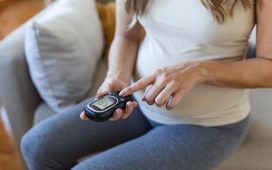MDMA-assisted psychotherapy effective, well tolerated for veterans and first responders with PTSD
WEDNESDAY, May 2, 2018 (HealthDay News) — For veterans and first responders with posttraumatic stress disorder (PTSD), receipt of 3,4-methylenedioxymethamphetamine (MDMA)-assisted psychotherapy is effective and well tolerated for reducing symptoms, according to a study published online May 1 in The Lancet Psychiatry.
Michael C. Mithoefer, M.D., from the University of South Carolina in Charleston, and colleagues conducted a randomized trial to examine the efficacy and safety of MDMA-assisted psychotherapy for treating chronic PTSD. Twenty-six service personnel with chronic PTSD of six months or more were randomized to three different dose groups of MDMA plus psychotherapy: 30 mg, 75 mg, or 125 mg (seven, seven, and 12 participants, respectively).
The researchers found that significantly greater decreases in PTSD symptom severity were seen for the 75-mg and 125-mg groups versus the 30-mg group (mean change in Clinician-Administered PTSD Scale total scores of −58.3 and −44.3, respectively, versus −11.4). Cohen’s d effect sizes were larger for the 75-mg and 125-mg groups versus the 30-mg group (2.8 and 1.1, respectively). Twenty participants reported 85 adverse events, of which 5 percent were serious and one was possibly related to study drug treatment.
“Active doses (75 mg and 125 mg) of MDMA with adjunctive psychotherapy in a controlled setting were effective and well tolerated in reducing PTSD symptoms in veterans and first responders,” the authors write.
The study was funded by the Multidisciplinary Association for Psychedelic Studies (MAPS); several authors disclosed financial ties to MAPS.
Full Text (subscription or payment may be required)
Editorial (subscription or payment may be required)
Copyright © 2018 HealthDay. All rights reserved.








